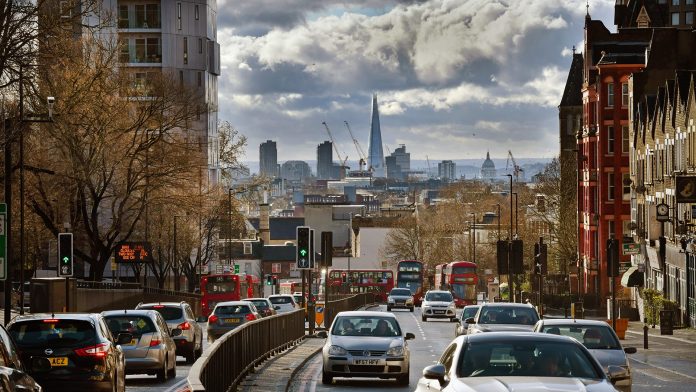UK peer to peer car sharing platform hiyacar explores the potential of shared mobility to reduce urban emissions.
Can you imagine a future where nobody owns a car? Collaborative consumption is becoming a more viable and appealing method of living. With the popularity of peer to peer property rental companies such as Airbnb and even clothes sharing services like Rent the Runway, less emphasis is now being placed on single ownership. Consequently, a world where nobody owns their own car is becoming even easier to picture. But what impact can the increase in peer to peer car sharing have on the environment right now?
What is peer to peer car sharing?
Car rental is by no means a new invention, but the direct lending of cars from one person to another is. This is what is known as peer to peer car sharing. In general terms, a scheme like this enables car owners to earn money by renting out their vehicle when it’s not in use.
Companies which specialise in peer to peer car sharing, such as London-based hiyacar, allow users to rent a nearby vehicle for however long is necessary, without even the need for a key. Essentially, this means multiple people from a certain area can have access to one vehicle whenever they need it.
Here’s how this sort of service operates. A customer signs up on the app, fills in the relevant details, finds an appropriate car for them, puts in a request; and they’re ready to go. The convenience of such a process means both short and longer term rental agreements are possible. With the option for customers to rent for a whole weekend or even just an hour (crucially only paying for the time they need), it’s easy to see why this is having an impact on traditional car ownership.
How can this help the environment?
Easing congestion
Ultimately, the aim of peer to peer car sharing is to match up drivers with empty cars – and this is how it has the biggest positive impact on the environment. There are an estimated 2.6 million cars in London alone; and yet, according to research carried out by the RAC Foundation, the average car in the UK is parked about 96% of the time. The huge number of stationary cars and the resultant strain on urban space simply means a less efficient city. Journeys are longer because more time is needed for parking and this competition over insufficient parking spaces leads to an increase in congestion.
However, if some of these parked cars can be utilised for at least a portion of the time they aren’t being driven by their primary owners, it can have a noticeable impact on both parking and congestion. Parking times will be shorter because users will be wanting to make the most of the reservation slots they’ve paid for; and of course, there will be fewer parked cars on the road because they’ll be in use by renters.
Less pollution
Most pollution in London is caused by road traffic. By reducing congestion, it stands to reason that peer to peer car sharing can also reduce pollution and carbon emissions. Moreover, an improvement in usage efficiency is another green benefit: by having a single car be used by more than one person, one shared car can essentially perform the work of multiple privately owned vehicles.
Decreasing vehicle consumption
Being able to share cars not only means fewer obstructing parked vehicles; it also results in fewer new cars driving on the road. This is because having more people utilise car sharing services will ultimately have a negative impact on the purchasing of new vehicles. For households currently without a car, the flexibility of peer to peer car sharing removes the need to permanently own one. It means people can have access to a vehicle for the completion of any short trips and errands, rather than having to invest in a car of their own.
Encouraging the use of electric vehicles
Electric cars are fuelled by a much more sustainable energy source than traditional diesel cars. Likewise, their level of CO2 emissions and fuel consumption is a lot greener. However, the high cost and perceived lower performance of these cars make them an unattractive option for a prospective permanent owner. That said, peer to peer car sharing services are allowing customers to make use of these more sustainable options at a lower price. Widespread shared the use of electric cars helps to normalise these vehicles in the long term and encourage their use in the future.
In 2017, car sharing services were used by around 10 million people; and this number is expected to grow to 36 million by 2025. Car sharing has gradually become a permanent fixture in London and now we can see the positive impact this increase in popularity can have on making the city greener. It looks like peer to peer car sharing is here to stay and maybe the environment is all the better for it.
This article was written by peer-to-peer car-sharing platform hiyacar.







